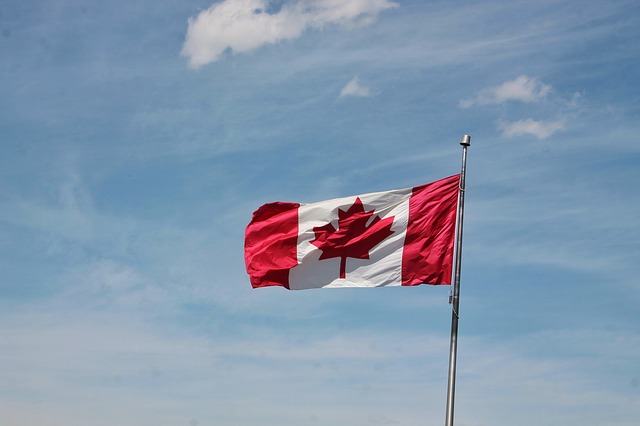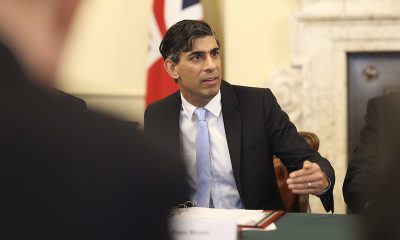Canada News
Que., Ont. budgets reveal different approaches to government, elections: experts

While both the Quebec and Ontario governments promised to dole out billions of new dollars, the two documents clash when it comes to their bottom lines (Pixabay photo)
TORONTO — In Canada’s largest provinces, two Liberal governments on the ropes as they gear up to fight for re-election have made their last fiscal plays to score points with voters — but with two vastly different plans.
While both the Quebec and Ontario governments promised to dole out billions of new dollars in their final budgets before each province heads to the polls, the two documents clash when it comes to their bottom lines.
Quebec, which tabled its budget Tuesday, balanced the books and laid out plans to pay down debt. Ontario’s plan, delivered a day later, plunged the province back into deficit and projected it would stay in the red for six years.
Experts say the two fiscal blueprints reveal contrasting approaches to governance and electoral strategy, though it’s unclear whether either will manage to turn the tide.
“It’s striking how they are so different from each other even though in both cases people are saying there’s kind of a spending frenzy,” said Genevieve Tellier, a political science professor at the University of Ottawa.
“We’re spending a lot in Quebec and in Ontario, but we’re not spending on the same things or the same way.”
Quebec’s spending package precisely targets who will get funding or tax relief with narrow programs, she said. Meanwhile, Ontario’s plan spreads the money widely in an effort to please everyone, she said.
“In Ontario, we’re now seeing a new vision about the welfare state… we’ll cover new services, health services, mental illness, medication, education, child care, really extending what the state is doing to help,” she said.
“While in Quebec there’s not this vision of the welfare state. If you deserve to be rewarded, you’re going to be rewarded… and who are the deserving people? They are those who contribute economically to the economy, to the province.”
Ontario’s Liberals tabled a $158.5-billion budget that pumps billions into health care, child care, and support for seniors, but reneges on a key government promise to balance the books — a goal they achieved last year for the first time in a decade.
Meanwhile, the provincial debt is projected to be $325 billion in 2018-2019, and interest payments this year will cost Ontarians $12.5 billion, making it the fourth largest spending item in the budget.
Quebec’s budget, presented a day earlier, boosts spending by 5.2 per cent and pours big money into health and education, two sectors forced to cut tens of millions of dollars earlier in the Liberals’ mandate.
The province also launched an aggressive plan to spend $2 billion a year over five years to lower the province’s debt. Gross debt has decreased for three years in a row and stood at $204.5 billion as of March 2018.
Ontario’s finance minister, Charles Sousa, bristled at the comparison earlier this week, saying that Quebec benefits from billions more in equalization payments from Ottawa and has a higher debt to GDP ratio than Ontario does.
Ontario’s fiscal position nonetheless remains less than stellar compared to its eastern neighbour, said Jean-Paul Lam, an economics expert at the University of Waterloo.
“At the end of the day, I think Quebec was more prudent in the sense of planning for the medium and long run, they got maybe a bit luckier than us in terms of economic growth, but I think this (Ontario) government is simply not concerned with deficit going forward,” Lam said.
The Ontario Liberals’ lavish spending is concerning from an economic standpoint but could work out well for them politically, he said. Expanding social programs backs the New Democrats into a corner and forces the Progressive Conservatives to either lay out which services they would axe or admit they would also run a deficit, he said.
In Quebec’s case, what the Liberals have presented is not dramatically different from what their rivals are likely to offer, but voters might still respond because the party has proven it can afford its promises, he said.
Tellier, from the University of Ottawa, said she believes Ontario’s Liberals are more likely to benefit from their budget, but that advantage may be short-lived if the other parties present compelling plans of their own.
“In both cases, the same reasons exist why voters don’t like those two parties (in Ontario and Quebec) — it’s that they have not been consistent over time,” she said.
Both governments have touted fiscal responsibility only to present a big-spending budget in an election year, she said. And while Quebec remains in the black, it does so by drawing on reserve funds after years of belt-tightening in the name of prudence, she said.
That kind of behaviour could spur cynicism among voters and sour some of the goodwill earned through budget spending, she said.
Ontario voters go to the polls in June and Quebec’s in October.





















